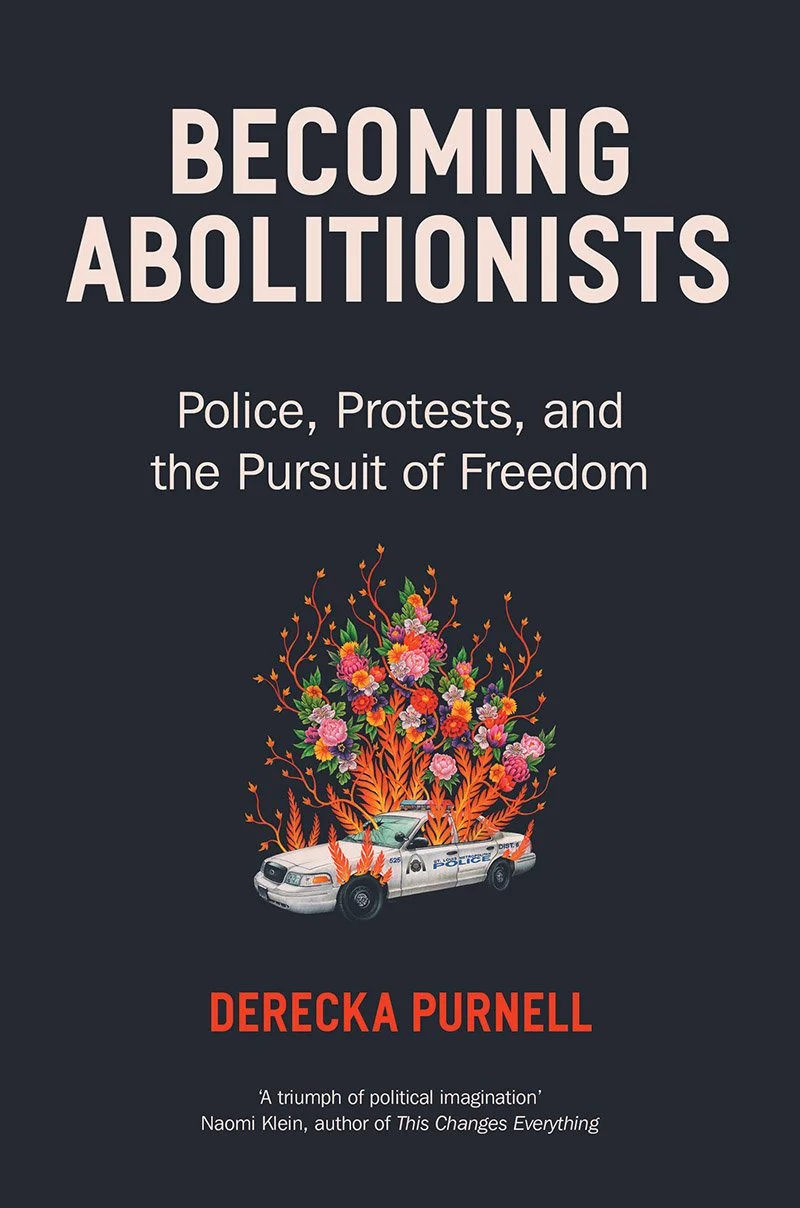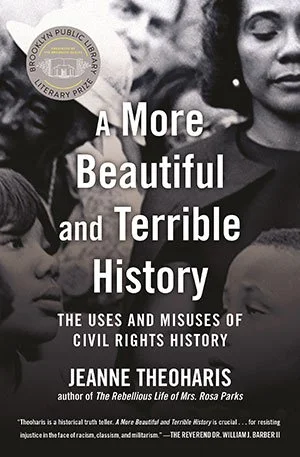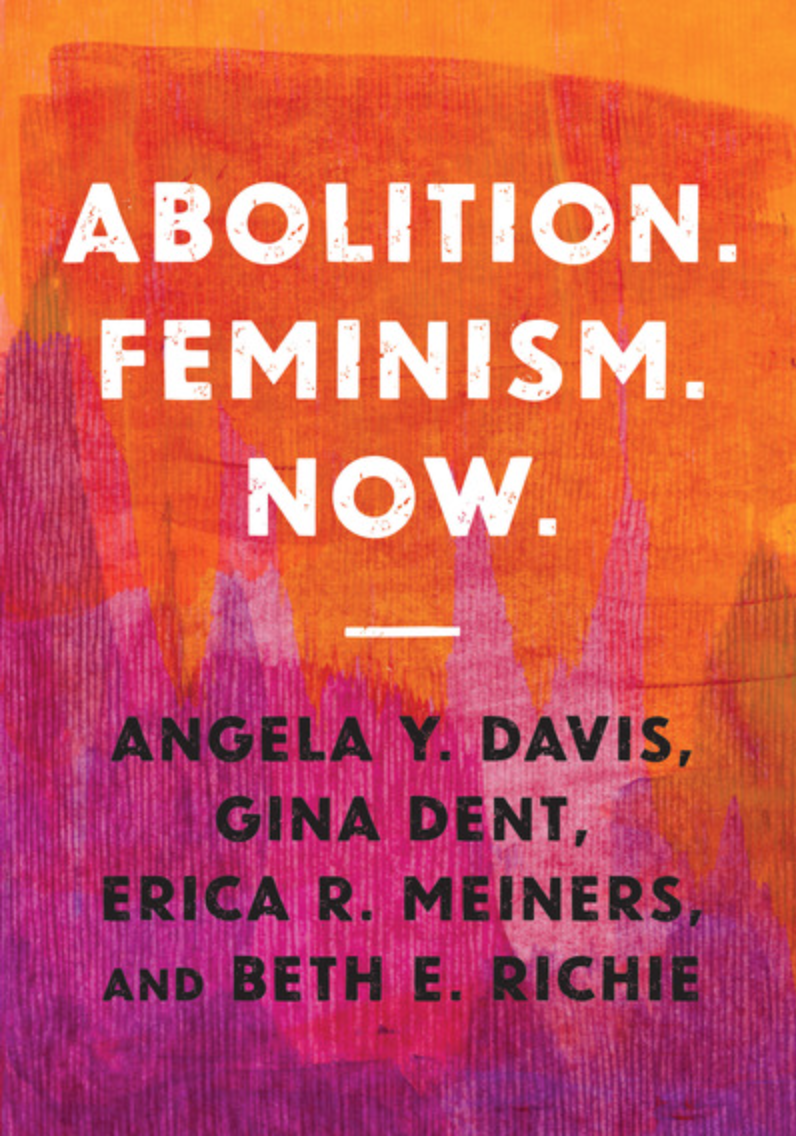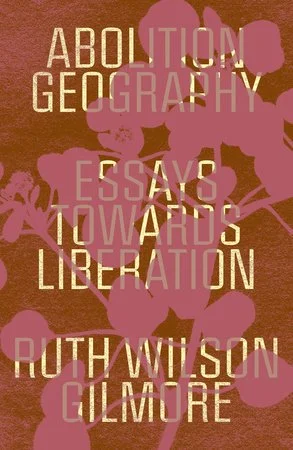FEBRUARY
Becoming Abolitionists: Police, Protests, and the Pursuit of Freedom
by Derecka Purnell
In the aftermath of George Floyd’s murder and the ensuing uprising, police abolition became a central demand for the black lives matter movement.
Derecka Purnell’s story starts in St. Louis, where calling 911 was often the solitary and dangerous resort for any number of challenges in a deprived neighbourhood. Her political awakening follows the devastation of Hurricane Katrina, the murder of Trayvon Martin and the protests and riots in her hometown, Ferguson, after the death of Michael Brown. Meeting organizers from all over the world, including Europe and South Africa, she is pushed to realize that the solution required is not better policing but the end of the policing itself.
Purnell’s life history and arguments make a powerful, passionate case for a society in which there is no place for state violence and racial repression. She confronts the history of policing as a means to capture runaway slaves and uphold white supremacy, a practice persisting today in the policing and murder of Black people, poor people, and disabled people on modern city streets. She argues that the worst of policing is the purpose of policing and that we need new systems to address the root causes of violence.
Check out the reading group guide and the faith community discussion guide from Astra Publishing House
MARCH
A More Beautiful and Terrible History: The Uses and Misuses of Civil Rights History
By Jeanne Theoharis
The civil rights movement has become national legend, lauded by presidents from Reagan to Obama to Trump, as proof of the power of American democracy. This fable, featuring dreamy heroes and accidental heroines, has shuttered the movement firmly in the past, whitewashed the forces that stood in its way, and diminished its scope. And it is used perniciously in our own times to chastise present-day movements and obscure contemporary injustice.
In A More Beautiful and Terrible History Jeanne Theoharis dissects this national myth-making, teasing apart the accepted stories to show them in a strikingly different light. Moving from “the histories we get” to “the histories we need,” Theoharis challenges nine key aspects of the fable to reveal the diversity of people, especially women and young people, who led the movement; the work and disruption it took; the role of the media and “polite racism” in maintaining injustice; and the immense barriers and repression activists faced. Theoharis makes us reckon with the fact that far from being acceptable, passive or unified, the civil rights movement was unpopular, disruptive, and courageously persevering. Activists embraced an expansive vision of justice—which a majority of Americans opposed and which the federal government feared.
APRIL
All About Love: New Visions
By bell hooks
“The word ‘love’ is most often defined as a noun, yet we would all love better if we used it as a verb,” writes bell hooks as she comes out fighting and on fire in All About Love. Here, at her most provocative and intensely personal, renowned scholar, cultural critic and feminist bell hooks offers a proactive new ethic for a society bereft with lovelessness--not the lack of romance, but the lack of care, compassion, and unity. People are divided, she declares, by society’s failure to provide a model for learning to love.
As bell hooks uses her incisive mind to explore the question “What is love?” her answers strike at both the mind and heart. Razing the cultural paradigm that the ideal love is infused with sex and desire, she provides a new path to love that is sacred, redemptive, and healing for individuals and for a nation.
Download the Study and Struggle Reading Guide or Rachael Zafer’s reading Guide
MAY
Abolition. Feminism. Now.
by Angela Y. Davis, Gina Dent, Erica R. Meiners, and Beth E. Richie
Abolition. Feminism. Now. is a celebration of freedom work, a movement genealogy, a call to action, and a challenge to those who think of abolition and feminism as separate—even incompatible—political projects. In this remarkable collaborative work, leading scholar-activists Angela Y. Davis, Gina Dent, Erica R. Meiners, and Beth E. Richie surface the often unrecognized genealogies of queer, anti-capitalist, internationalist, grassroots, and women-of-color-led feminist movements, struggles, and organizations that have helped to define abolition and feminism in the twenty-first century. This pathbreaking book also features illustrations documenting the work of grassroots organizers embodying abolitionist feminist practice. Amplifying the analysis and the theories of change generated out of vibrant community based organizing, Abolition. Feminism. Now. highlights necessary historical linkages, key internationalist learnings, and everyday practices to imagine a future where we can all thrive.
Download the Reading Guide
June
The Nation On No Map
By William C. Anderson
The Nation on No Map examines state power, abolition, and ideological tensions within the struggle for Black liberation while centering the politics of Black autonomy and self-determination. Amid renewed interest in Black anarchism among the left, Anderson offers a principled rejection of reformism, nation building, and citizenship in the ongoing fight against capitalism and white supremacism. As a viable alternative amidst worsening social conditions, he calls for the urgent prioritization of community-based growth, arguing that in order to overcome oppression, people must build capacity beyond the state. It interrogates how history and myth and leadership are used to rehabilitate governance instead of achieving a revolutionary abolition. By complicating our understanding of the predicaments we face, The Nation on No Map hopes to encourage readers to utilize a Black anarchic lens in favor of total transformation, no matter what it’s called. Anderson’s text examines reformism, orthodoxy, and the idea of the nation-state itself as problems that must be transcended and key sites for a liberatory re-envisioning of struggle.
Download the reading guide
JULY
Abolition Geography: Essays Towards Liberation
By Ruth Wilson Gilmore
Gathering together Ruth Wilson Gilmore’s work from over three decades, Abolition Geography presents her singular contribution to the politics of abolition as theorist, researcher, and organizer, offering scholars and activists ways of seeing and doing to help navigate our turbulent present.
Abolition Geography moves us away from explanations of mass incarceration and racist violence focused on uninterrupted histories of prejudice or the dull compulsion of neoliberal economics. Instead, Gilmore offers a geographical grasp of how contemporary racial capitalism operates through an “anti-state state” that answers crises with the organized abandonment of people and environments deemed surplus to requirement. Gilmore escapes one-dimensional conceptions of what liberation demands, who demands liberation, or what indeed is to be abolished. Drawing on the lessons of grassroots organizing and internationalist imaginaries, Abolition Geography undoes the identification of abolition with mere decarceration, and reminds us that freedom is not a mere principle but a place.







